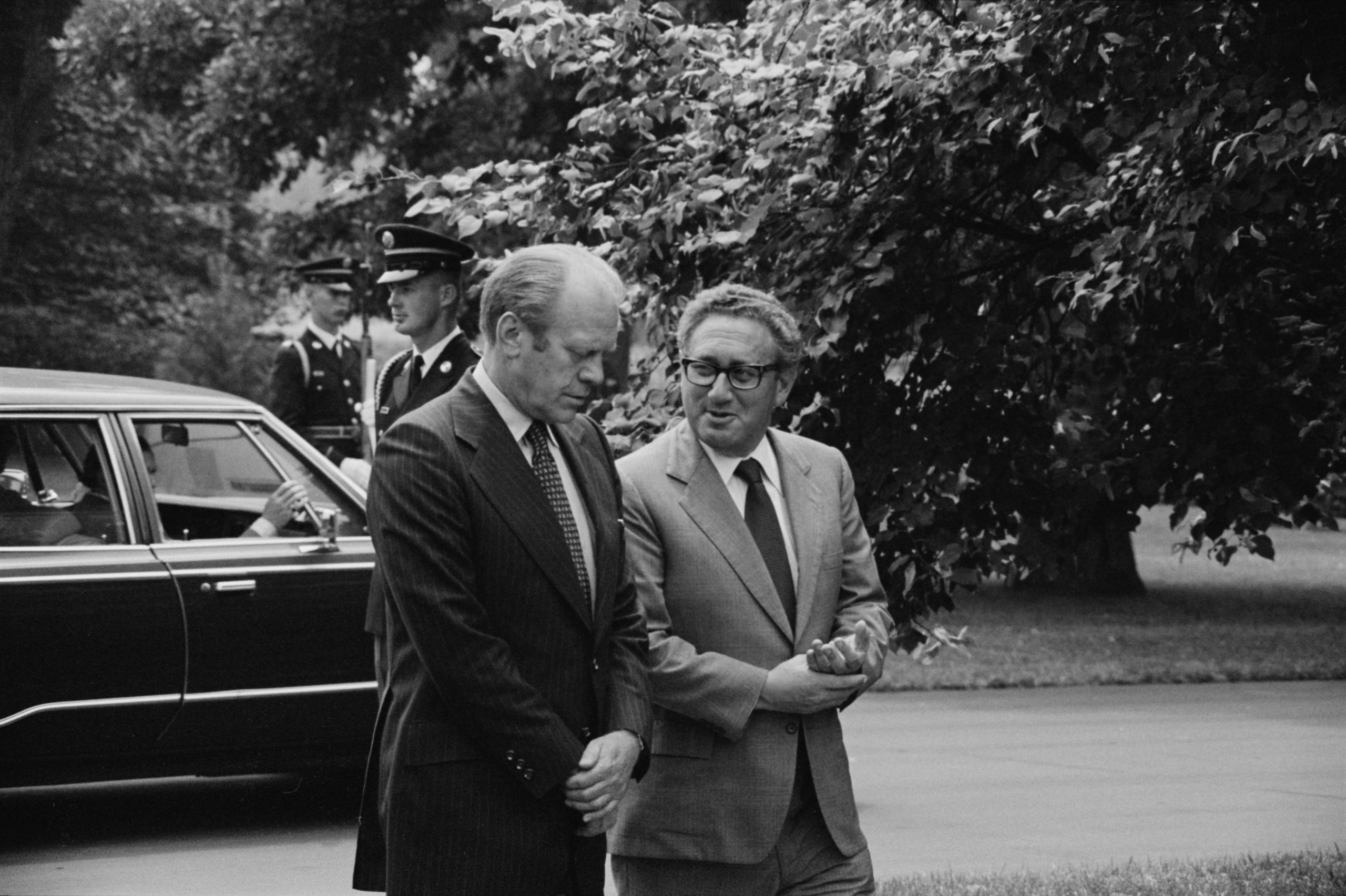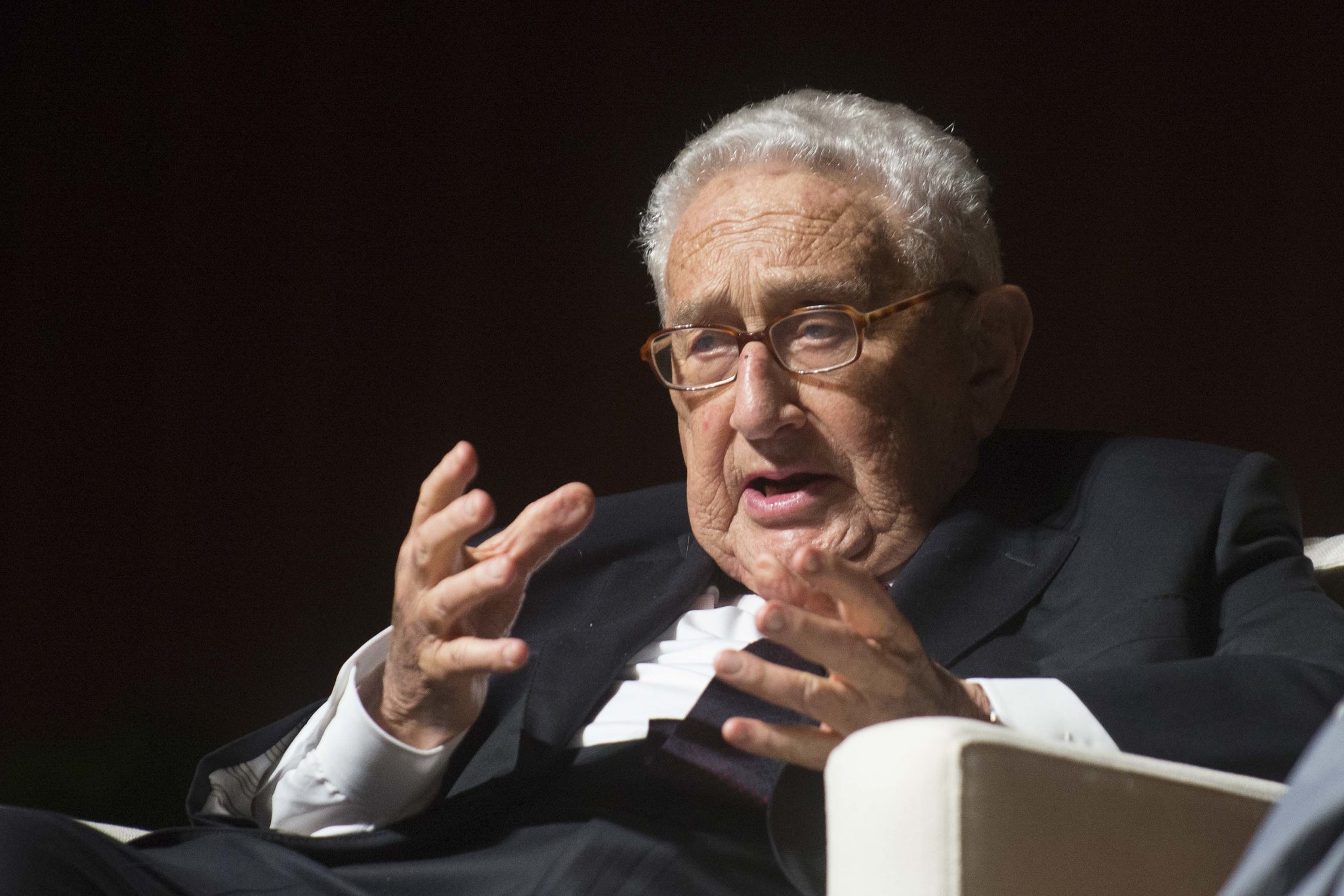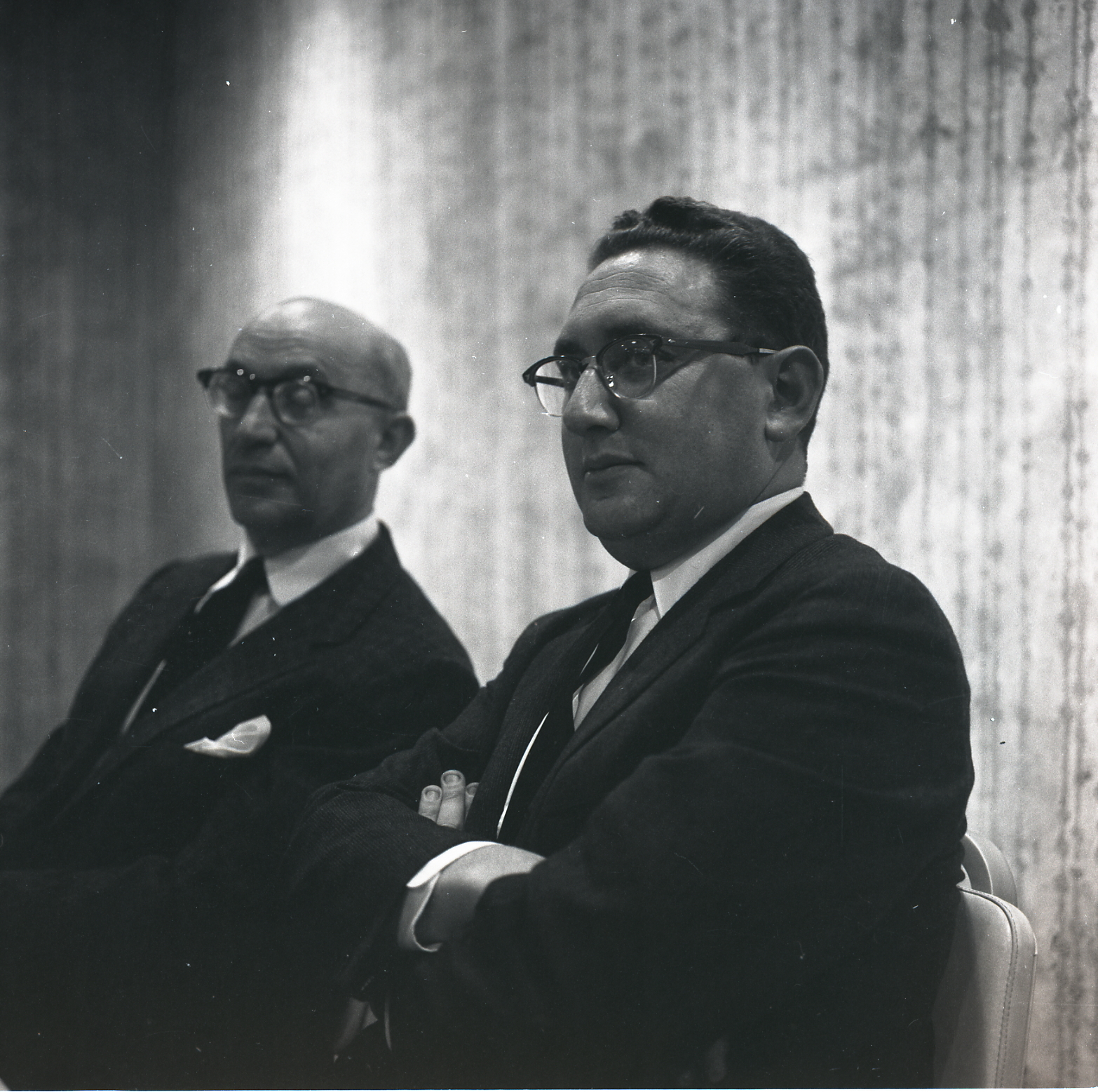Political Genius or War Criminal: Researcher at the Faculty of History of VU, Andrius Grodis, Discusses Henry Kissinger

Gerald Ford and Henry Kissinger in 1974. Photo by T. J. O'Halloran
Henry Alfred Kissinger, a political figure in the US, died on 29 November at the age of 100. The news of his death echoed far and wide across the world but was met with mixed reactions. For some, he was a genius of international politics engaged in diplomacy even in the last years of his life; for others – he was a war criminal responsible for the overthrow of democracy. Andrius Grodis, a lecturer at the Faculty of History of Vilnius University (VU), discusses the activities of this person during the Cold War and his historical meaning in the context of the war in Ukraine.
The way to the post of Secretary of State
According to Lecturer Andrius Grodis, the first aspect to be noted in order to understand Henry Kissinger better is that he was a European of Jewish origin born in Germany: “It was the time when people fleeing Nazism were going to the US. Kissinger’s biography reflects the fundamental process of turning German science into American science in the early 20th century. Many current and future scientists at that time went to the US. This was also how Kissinger ended up there.”
Henry Kissinger retreated to the US at the age of 16. During World War II, he suspended his accounting studies and began serving in the American Army. Thanks to his knowledge of German, he was distinguished in the intelligence service, and after returning, he continued his scientific activities in the field of history and political science. A. Grodis points out that Kissinger’s dissertation was on the Vienna Congress (1814–1815) and the new European international order that subsequently emerged from it. “It was common in the US for academics to become politicians or political advisers, and Kissinger also followed this path. It can be said that he started out by building a solid academic reputation and then entered the world of politics,” says A. Grodis.
Kissinger began his political career in 1963 as a foreign policy adviser to Richard Nixon. The historian Andrius Grodis distinguishes this beginning of political activity as the second important feature of Henry Kissinger’s biography. “Kissinger later became Secretary of State. He continued to serve after Gerald Ford became the President. However, Ford had only some experience in international relations, as he had become the President in the aftermath of the Watergate scandal. Kissinger was characterised by the fact that he was able to integrate his political views into the course of the foreign policy of the state. The President’s role in foreign policy decisions is usually decisive, so when Richard Nixon was President, Kissinger had to obey the head of state on some foreign policy issues, even if he did not agree personally. However, during Ford’s presidency, US foreign policy reflected Kissinger’s strategy – his perception of what America’s role in the world should be,” says the researcher.
A. Grodis points to Kissinger’s ability to combine his academic and political activities: “People who entered politics usually terminated their academic activities because they simply did not have time and energy to do both, but Kissinger was able to reconcile the two. He wrote scholarly works and was recognised for the synthesis of the history of international relations titled Diplomacy. Kissinger’s work has become a textbook for students at higher education institutions intending to become diplomats and for those working in foreign policy departments. However, at the same time, his role remained very important in US foreign policy.”

Henry Kissinger in 2016. Photo by Marsha Miller
Theorist and practician of the realist paradigm
The historian Andrius Grodis believes that Henry Kissinger was one of the most important theorists and supporters of the realist paradigm of international relations: “The principle of the balance of power is one of the fundamental elements of this paradigm, which Kissinger promoted throughout his life and developed in his theoretical work. According to Kissinger, in order to ensure the stability and peace of the international system, the great powers need to maintain a balance among themselves. As soon as the balance of power is violated, as in the Napoleonic era or on the eve of World War I, conflicts arise. Kissinger was a 19th-century researcher; his dissertation focused on the period when the balance of power worked well – it was possible to avoid great wars, such as those that had plagued the 18th century. This is why he prioritised the balance of power,” explains the lecturer at the Faculty of History of VU.
The researcher points out that Kissinger’s diplomacy, based on the realist paradigm of international relations, clashed with the so-called Wilsonian idealism popular in US political discourse, which emphasises the importance of moral principles in the international system: “Kissinger valued Wilsonian idealism but said that national interests should be given priority in practice. If we look at what kind of people he praised in his academic work, we will see such figures as Cardinal Richelieu, who, in the 17th century, revolutionised the European international system and chose national interests over religion. Also, Otto von Bismarck, who, in the 19th century, abandoned the moral imperatives of the Vienna system and switched to Realpolitik – this helped him to unite Germany. Likewise, Kissinger, in the midst of the Cold War, abandoned an uncompromising hard-line struggle with Moscow and, together with Nixon, initiated a political course of détente. There were two main elements. One was the improvement of relations with the Soviet Union, which opened up the possibility to conclude the Strategic Arms Limitation Treaty (SALT). The second was Kissinger’s pragmatic approach and understanding of what was most beneficial to the US in breaking down the communist world.”
The latter strategic option, according to A. Grodis, opened up just as relations between Moscow and Beijing were deteriorating; thus, Kissinger launched a new diplomatic campaign: “He started to build a relationship with China, which we can say had not previously existed before. At the time, China was still recovering from the so-called Great Leap Forward that killed millions of the country’s population and caused more harm than good to the Chinese economy. China was certainly not yet a great economic power, but Kissinger had already seen at the same time that the US would benefit both from improving relations with the Soviet Union and from forging ties with China. He had become one of the architects of the Cold War diplomatic revolution by looking at historical experience and using it in practice.”
Andrius Grodis points out that Henry Kissinger’s role in establishing US-China relations is not only remembered in Washington but also in Beijing: “I would say it is very symbolic that Xi Jinping, who does not receive any former US statesmen at all, received Kissinger. It seems to have been a message to US foreign policy that China needs the kind of relationship with the US that Kissinger established.”

Henry Kissinger in 1961. Photo by Boris Carmi
Controversial assessment and obsolete approach
When asked why Kissinger’s foreign policy programme was criticised, A. Grodis first highlights the reluctance of a significant part of the then US political elite to sit down at the negotiating table with Communist-ruled states: the Soviet Union, China, and North Vietnam. On the other hand, the head of US diplomacy was also criticised for its traditional policy of stopping communism. The overthrow of Chile’s democratically elected president, Salvador Allende, Kissinger’s support for the authoritarian regime of Augusto Pinochet, and the bombing of Cambodia to destroy North Vietnam’s military bases there are, according to A. Grodis, perhaps the most common arguments of those who label Henry Kissinger a war criminal.
Speaking about the context of the Ukrainian war, the historian says that the suggestion of the famous diplomat to return to the pre-invasion border prior to the Russian aggression, which provoked outrage not only in Ukraine but also in other countries that experienced the Soviet occupation, could have been due to Kissinger’s fears about Moscow’s growing dependence on Beijing. “The deepening confrontation between Russia and the West in support of Ukraine will push Moscow into a Beijing-based political fairway, which Kissinger believed would undermine the strategic interests of the US, particularly in Southeast Asia and the entire Pacific region,” remarks Andrius Grodis.

Andrius Grodis. Photo: personal archives
The controversial call by the former US Secretary of State for Ukraine to accept the loss of part of its territory for the sake of the international order illustrates, according to Grodis, the worldview built up in Kissinger’s scholarly work and put into practice in diplomacy, where great powers are key actors and the stability of the international system depends solely on their ability to cooperate. “In the hierarchical world order of Henry Kissinger and his diplomatic school, small states such as Lithuania cannot feel safe. One day, they are a strategic partner, but the next, when the multi-dimensional priorities of great power change, they can suddenly become an object of exchange with another power. This is the political philosophy of the old Realpolitik school, whose one of the most prominent representatives of the 20th century is Kissinger,” states A. Grodis.
In conclusion, the historian stresses that Kissinger’s personality and activities have already received and will undoubtedly continue to receive considerable attention from researchers of international relations in the future. Still, he also hopes that the principles of diplomacy promoted by the US policy mogul will give way to the worldview of the international order that reflects the interests of small states.